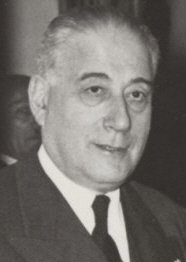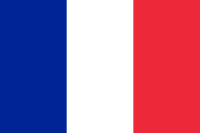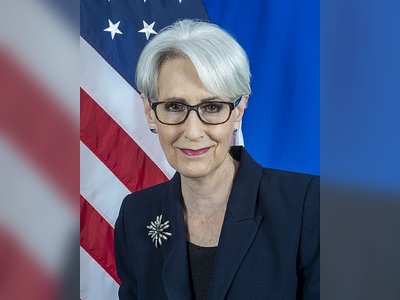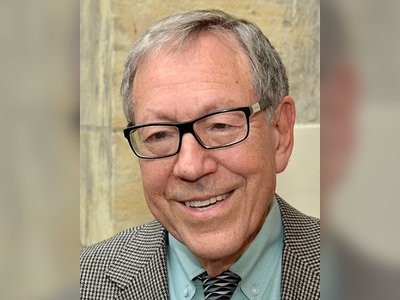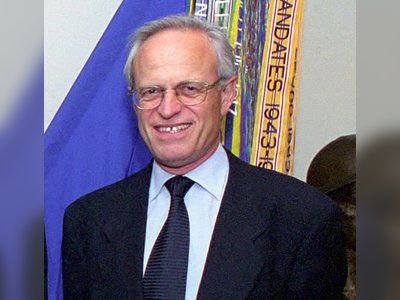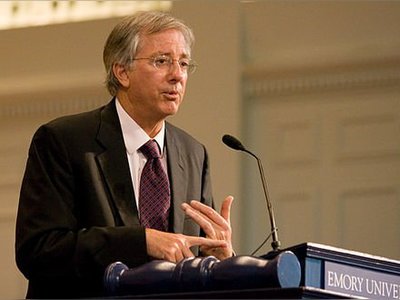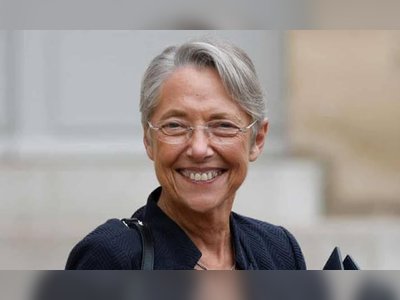René Mayer
René Mayer (French: René Mayer; May 4, 1895 – December 13, 1972) was the Prime Minister of France for approximately six months in 1953, during the Fourth French Republic in the aftermath of World War II. Mayer was the second Jewish prime minister of France, following Léon Blum, and one of five Jewish prime ministers in French history.
Before his term as Prime Minister, Mayer held various high-ranking positions in the French government, including Minister of Transportation and Public Works, Minister of Finance and Economics, Minister of Defense, Minister of Justice, and Deputy Prime Minister. Two years after his term as Prime Minister, he was appointed as the President of the body preceding the European Union, serving in that role for two and a half years.
Biography
Mayer was born into a wealthy Jewish family in the eighth arrondissement of Paris in 1895. His paternal grandfather was the Chief Rabbi of Paris, and his father, Justin Mayer, held a senior position at the "Dufayel" company. On his mother's side, he was related to the Rothschild family.
His father passed away when he was just two years old, and he was raised by his mother and maternal grandmother. Mayer studied and earned his undergraduate degree in law.
He enlisted in the French Army during World War I in December 1914 and fought in the artillery corps, suffering injuries in the battle in 1918. In 1920, he was appointed to the State Council of France.
On November 29, 1921, Mayer married Suzy Denis (née Bluh), and they had two children: Lise and Antoine, who tragically died on September 16, 1944.
From 1921 to 1932, Mayer served as a lecturer and later as a professor at the l'École Libre des Sciences Politiques. Simultaneously, he held various high-ranking government positions, including the Director of the Strasbourg Port Authority (1924–1928) and worked in the business sector.
Among other roles, he served as a Director and, starting in 1932, Deputy President of the French National Railways Company (Édouard de Rothschild, his cousin, was the company's president). On October 7, 1933, he co-founded Air France, a merger of several small aviation companies that preceded it, and later managed Air France until 1940 when he was dismissed due to Vichy anti-Jewish laws.
In 1939, with the outbreak of World War II, Mayer re-enlisted in the French Army and led the Ministry of Armament's mission in London. He returned to southern France in May 1940 under Vichy rule. Toward the end of 1941, under German pressure, Vichy France decided to create a unified Jewish organization to facilitate their control over the Jewish population.
On November 29, 1941, the Union générale des israélites de France (UGIF), the General Union of French Jews, was established, and Mayer was one of its founders, although he later managed to avoid active involvement in the organization. In January 1943, he fled from southern France to Barcelona and then to Algeria, where he joined the forces of Henri d'Astier de la Vigerie, who was leading the Free French in North Africa.
Minister
In November 1943, while France was still under Nazi occupation, Henri Giraud resigned from all positions in the "French Committee of National Liberation," and General Charles de Gaulle became its sole leader. On November 9, 1943, Mayer was appointed as the Minister of Transportation in a quasi-government that operated only in North Africa at that time.
The de Gaulle government later transitioned from a "Committee" to a full-fledged government with the establishment of the Provisional Government of the French Republic after France's liberation. Mayer continued in the same role, and on August 11, 1951, he also took on the additional responsibilities of Minister of Public Works. He held this position in the de Gaulle government for just over two years, until November 21, 1945, when de Gaulle himself resigned, about two months later.
Mayer now entered the political arena, joining the Radical Party. While the party was founded as a left-wing party in 1901, during Mayer's time and throughout the Third and Fourth French Republics, it had become a centrist party.
Mayer attempted to be elected as a representative from the Girondin department in southwestern France, but he failed. Instead, in June 1946, he was elected as a representative from Constantine, Algeria. He continued to serve in the French Parliament for the next nine years, until 1955, consistently representing the interests of French settlers in Algeria.
The Fourth Republic was established in January 1947, and its governments frequently changed, alternating between right-center coalitions, usually led by the conservative party, and left-center coalitions, usually led by the Radical Party. During the Fourth Republic, there were a total of 24 different governments.
Mayer was not included in these changing governments until the establishment of the more right-wing Robert Schuman government on November 24, 1947. Mayer was appointed as the Minister of Finance and Economics for eight months.
On July 26, 1948, as the coalition shifted to a left-center government led by André Marie of Mayer's Radical Party, Mayer changed ministries, moving from Minister of Finance to Minister of Defense. However, his time in this new role was short, lasting less than two months, until September 11, 1948.
Following a year-long hiatus, Mayer returned to the government for about two years, from October 29, 1949, to August 11, 1951, under various prime ministers from different parties, serving as the Minister of Justice.
From August 11, 1951, to January 20, 1952, he became the Deputy Prime Minister under René Pleven, a figure from the left-wing, and he also served as the Minister of Finance and Economics for the second time. Mayer did not continue in the brief government of Edgar Faure, a member of his own party, nor in the government of the right-center coalition led by Antoine Pinay, which held power for almost a year.
Throughout this period, Mayer did not abandon his Jewish identity. Concurrent with his political activity, he also served as the Vice President of "Alliance Israélite Universelle," an organization committed to Jewish education and culture.
However, one of Mayer's early actions as Minister of Justice in 1949 was to grant partial clemency to Xavier Vallat, an anti-Semitic figure responsible for Jewish affairs in Vichy France who had sent many Jews to Nazi death camps. Vallat was sentenced to only ten years in prison, and even that was significantly reduced by Mayer.
Prime Minister
On January 8, 1953, the government changed again, this time to a left-center coalition, and Mayer was appointed as the Prime Minister of France, representing his party. He served as Prime Minister for approximately six months until June 28, 1953, when, due to shifting political coalitions, he was replaced by Joseph Laniel of the conservative party. Laniel himself was replaced after about a year, in June 1954, by another representative from Mayer's Radical Party, Pierre Mendès France.
During his short time as Prime Minister, Mayer attempted to implement economic reforms and address the ongoing conflict in Indochina, a French colony. However, his government was short-lived and faced significant political challenges. Following his tenure as Prime Minister, Mayer continued to be active in French politics, serving as a member of the French Parliament until 1955 and holding various positions in the French government and international organizations.
European Integration
One of Mayer's significant contributions to European history was his role in the early stages of European integration. In 1954, he was appointed as the President of the Parliamentary Assembly of the European Coal and Steel Community (ECSC).
This position marked the beginning of his involvement in European affairs. Mayer played a key role in advocating for the establishment of a European Defense Community (EDC) and the European Political Community (EPC), which aimed to further integrate European countries.
Although the EDC ultimately failed to gain ratification by the French National Assembly in 1954, Mayer continued to work on European integration efforts. In 1955, he was appointed as the President of the European Parliamentary Assembly, a precursor to the European Parliament. Mayer played a significant role in promoting cooperation and integration among European countries during this period.
Legacy
René Mayer's political career was marked by his involvement in various French governments during a tumultuous period in the country's history. While his tenure as Prime Minister was brief, his contributions to European integration efforts and his commitment to public service left a lasting legacy. Mayer passed away on December 13, 1972, in Paris, France.
- רנה מאיירhe.wikipedia.org
